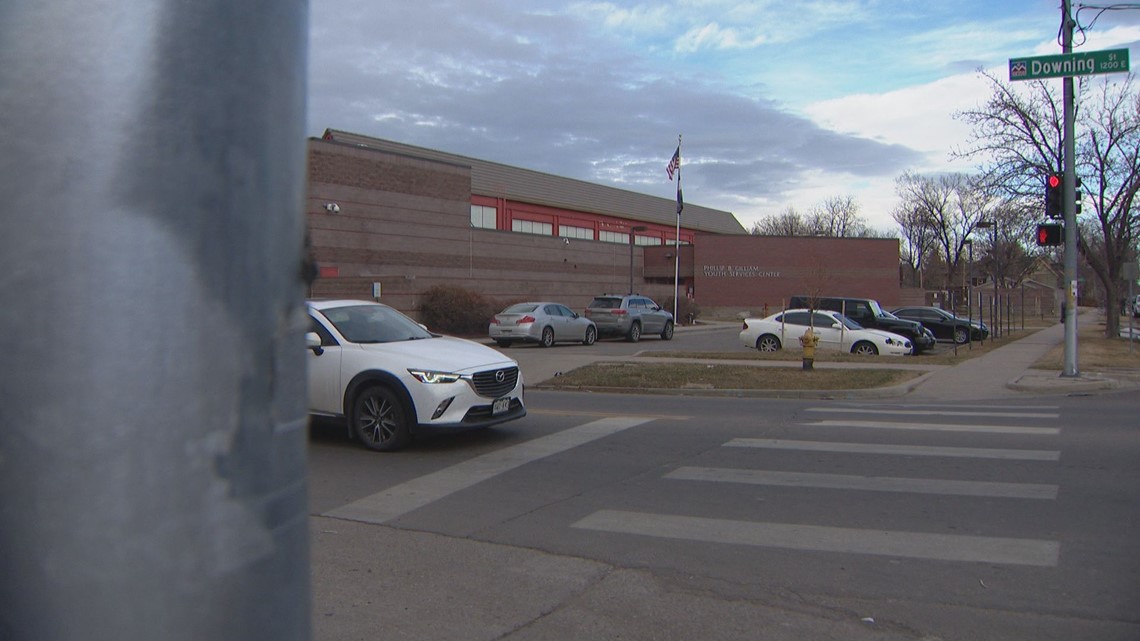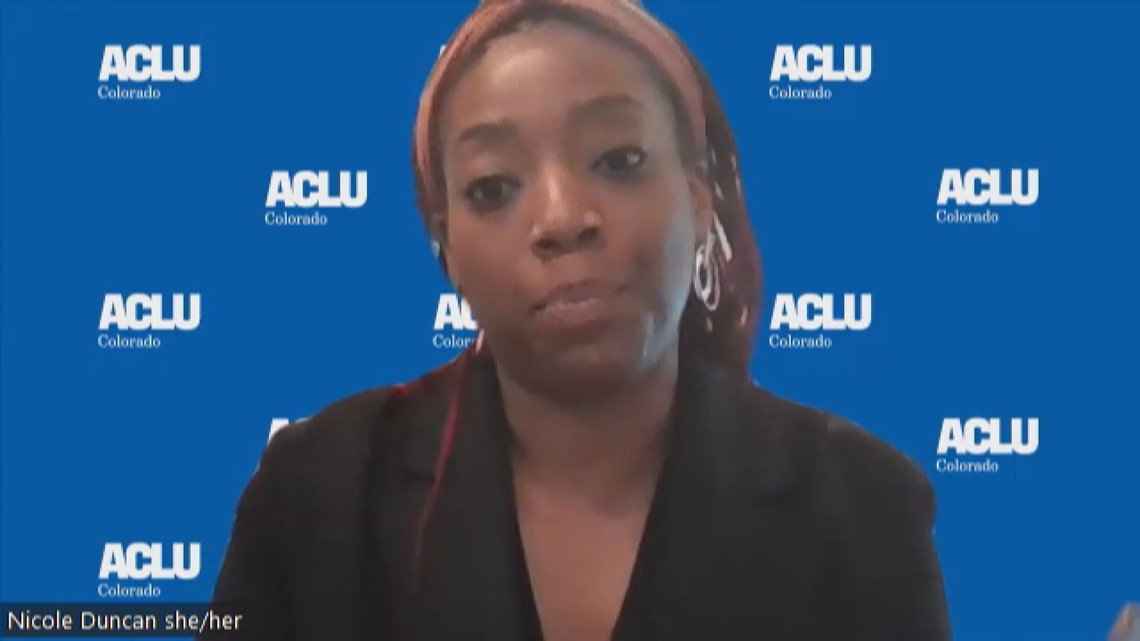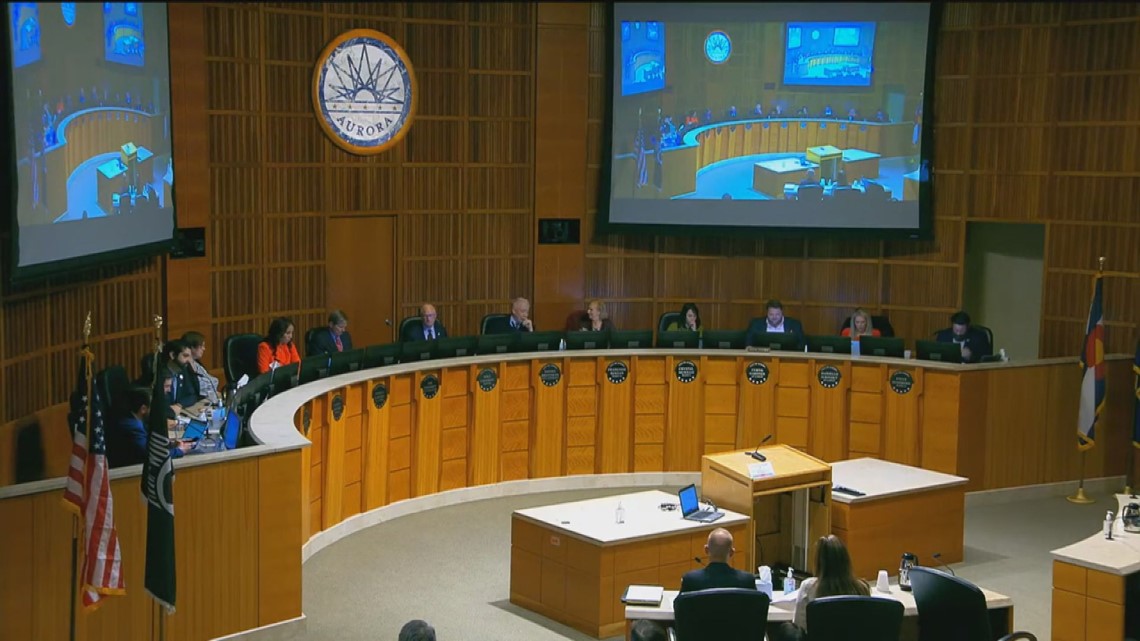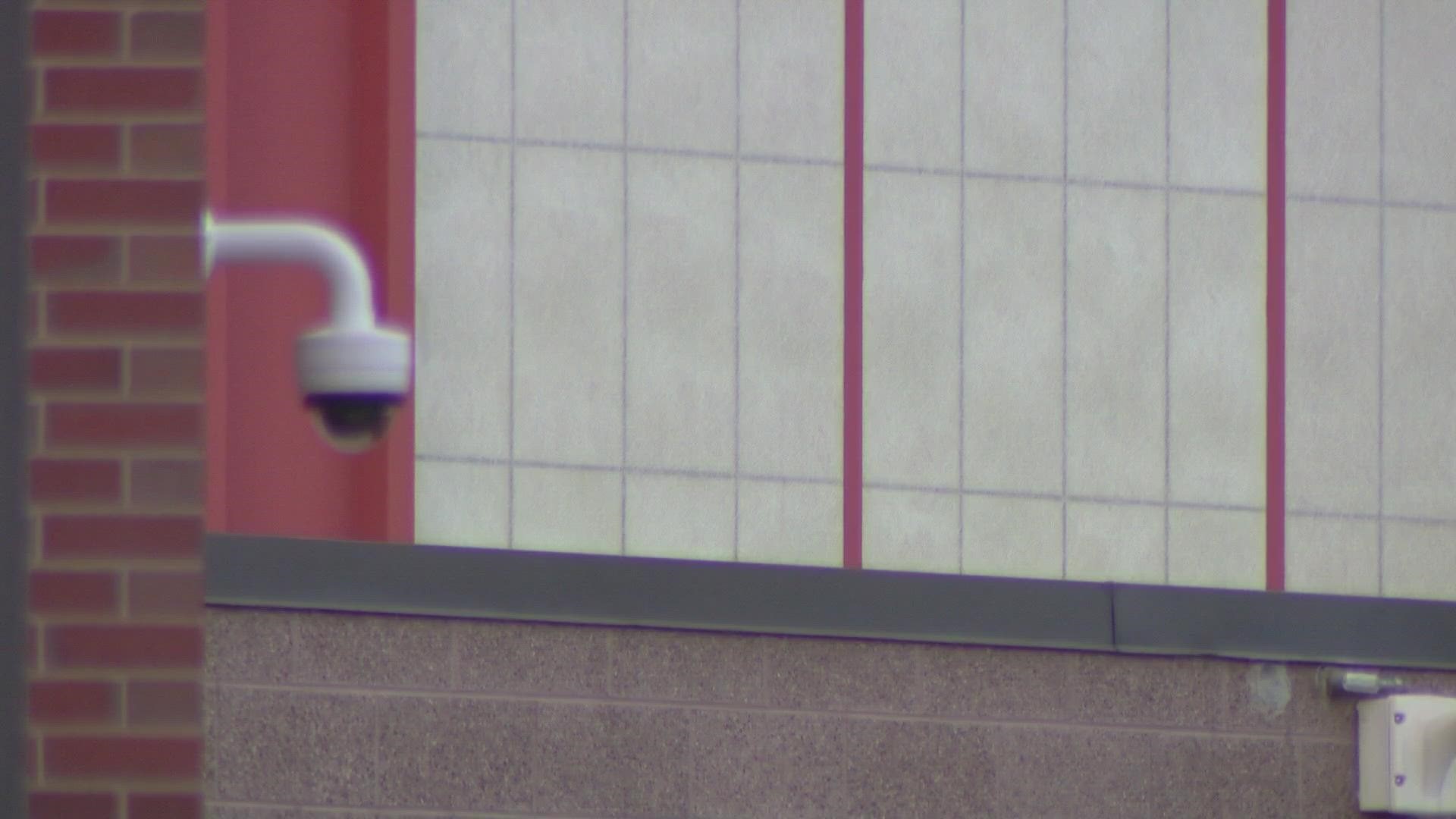AURORA, Colo. — On Feb. 13, the Aurora City Council passed a resolution urging state lawmakers to pass legislation this year to remove the capacity limit on available beds in Colorado's juvenile detention facilities.
The resolution, sponsored by councilmember Dustin Zvonek, calls the cap "arbitrary" and argues that removing such a cap would help with public safety.
"If we're going to acknowledge that there are certain types of crimes that kids can commit that require juvenile detention, then why have a cap at all?" he told 9NEWS Tuesday.
The resolution passed on a 6-4 vote.
Zvonek said this now allows council to advocate for the legislation at the state capitol themselves, if a bill comes to fruition on the matter.
"We need to see fewer kids who are committing these violent crimes being released right back into the same environment that they were in when they committed what was a violent crime and got them into this position," he said.
However, other organizations that take a deep interest in policies around youth detention believe the move is unnecessary.
"I think part of the issue is making sure that we are tackling the problems that exist," said Anaya Robinson, Senior Policy Strategist at the ACLU of Colorado.


A different perspective argues a different approach
Robinson said that includes funding programs that don't have "adequate placement" for youth.
"To make sure that that placement is there when it is needed so that kids aren't having to stay in detention to take up those beds unnecessarily," Robinson said.
Since 2003, legislation has decreased the capacity of beds across all of Colorado's juvenile detention facilities.
Back then, the capacity was set at 479 beds, according to data sent by a spokesperson for the Colorado Department of Human Services.
Four bills and 18 years later, the capacity was reduced to 215 beds, thanks to legislation in 2021.
Citing state data, the ACLU of Colorado has reported that 60% of kids in custody of juvenile detention facilities are in for alleged non-violent offenses. Most kids in these facilities have not yet had their day in court, the ACLU said.
Their overview of state data says the daily average was 173 beds filled as of November.
The 60% statistic, they say, primarily consists of "low-risk" crimes that include property crimes, truancy, runaways and misdemeanors. It also includes kids with mental health, drug and treatment needs.
"At this point, what we have seen is that kids will sit around for weeks, months, sometimes up to a year, waiting for their case to be resolved and not receiving anything at all," said Nicole Duncan, Youth Policy Counsel for the ACLU of Colorado, who is also a youth defense attorney.


She believes that eliminating the cap in the name of community safety would actually have the opposite effect.
"The fact of the matter is that detention decreases community safety. And I think that's really important for people to hear," she said.
Instead, both Robinson and Duncan feel the focus should be on those who are already in juvenile detention facilities.
"We don't disagree that a problem exists getting kids the support that they need in this space. We just disagree that this is not the solution to the problem," Robinson said.
Council member Zvonek said he feels the issue around bed capacity does not address the issue of resources in detention facilities, saying they're two different policy arguments.
"First, it's why have a cap at all? And then, let's talk about making sure that those resources are, in fact, available," Zvonek said.


Capacity vs. resources
The Feb. 13 meeting saw nearly an hour of discussion by Aurora council members on the solution.
At one point, council member Alison Coombs motioned to table the resolution until they received more information from the legislature. That motion failed on a 5-6 vote.
Council member Juan Marcano, who voted in favor of the resolution, said he felt the move could push the state in a direction of providing more resources to the facilities.
"These folks need to be held there so that they can be rehabilitated and then reintroduced into society in a way that's not harmful," he said. "And we don't have enough beds dedicated to behavioral and mental health issues in the state, which is why they're using these juvenile detention ones instead. So I feel like we'd be moving in a more productive direction here if we could actually just get the state to provide more resources for behavioral and mental health so that we can utilize the beds that we're talking about increasing this cap for, for the purpose that they were actually intended to be used."
At one point, Aurora Interim Police Chief Art Acevedo provided his perspective, advocating for getting kids off the streets through detention, but also saying he feels there needs to be an effective reentry program to break the recidivism cycle.
"We don't want to warehouse them, but we want to take them away from very dangerous environments where they're being used. And so to me, it should be based on the need for space to keep these kids off the streets," he said.
SUGGESTED VIDEOS: Latest from 9NEWS

